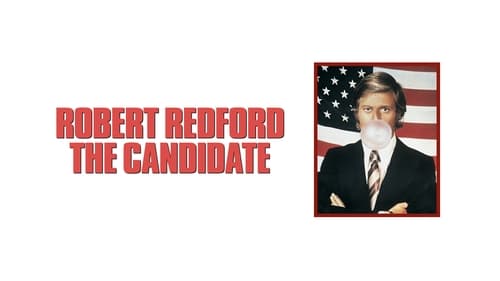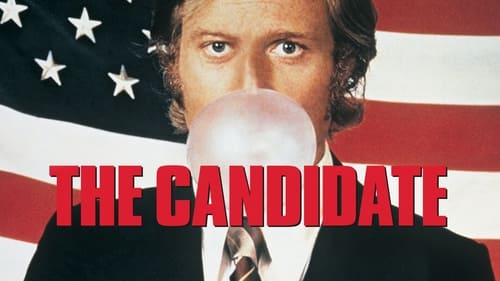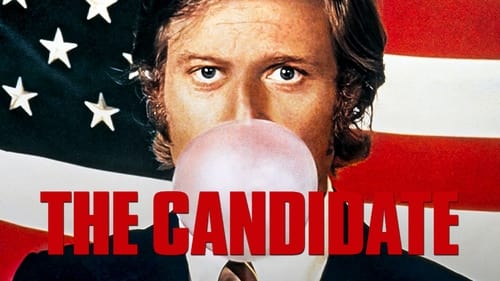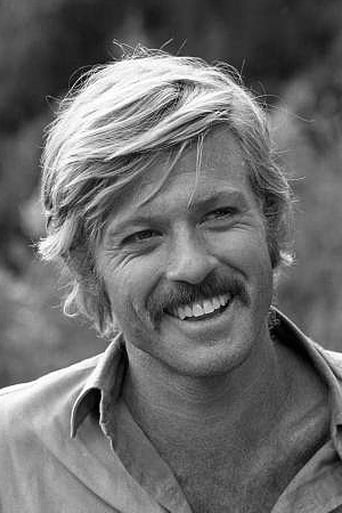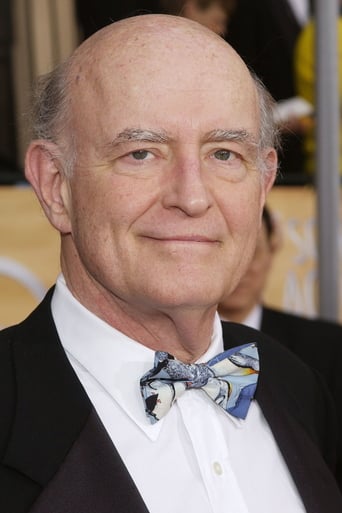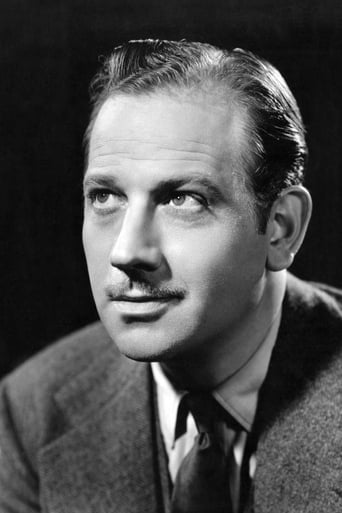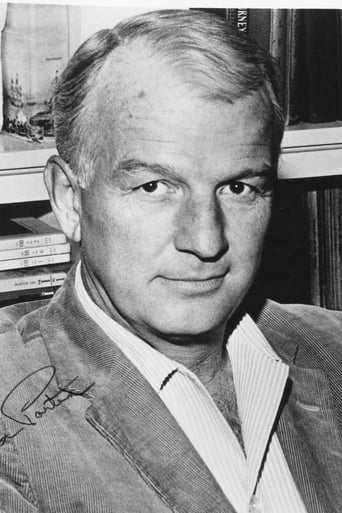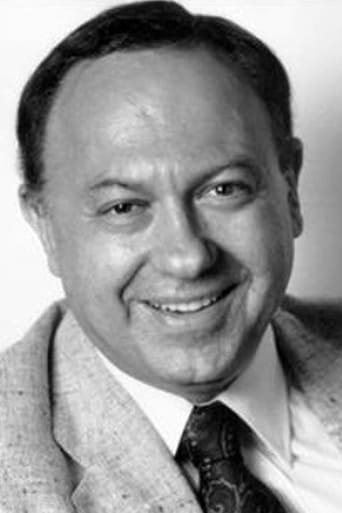Calum Hutton
It's a good bad... and worth a popcorn matinée. While it's easy to lament what could have been...
Scotty Burke
It is interesting even when nothing much happens, which is for most of its 3-hour running time. Read full review
edwagreen
Excellent film where a young, good looking attorney is nominated by the Democrats for the governorship of California, opposing the Republican who believes strongly in the typical Republican line of Herbert Hoover-Individual initiative.The surprise in this film is Don Porter, a veteran character actor of television and the film, who gets the role of his life as the incumbent senator, ready to take on Bill McKay's (Redford)idea of A Better Way with McKay.Peter Boyle shines as the political operative and we see all the preparations that go into the making of a candidate. We see a candidate who refuses to compromise on his views, while seeing better days ahead.
NORDIC-2
The principal speech writer for Senator Eugene McCarthy during McCarthy's unsuccessful bid to win the Democratic Party's nomination for President in the spring of 1968, Jeremy Larner was uniquely qualified to write the screenplay for 'The Candidate'. A political operative with access to the inner workings of a major campaign, Larner was also an idealist who had become deeply disillusioned by the discrediting and abandonment of FDR-style liberalism in the late Sixties—done to death by LBJ's prosecution of the Vietnam War and Richard Nixon's opportunistic stress on "law and order" (a thinly disguised code term for white, middle-class reaction). Toward the end of Nixon's first term Larner penned 'The Candidate' as a protest and a warning that American politics was being stripped of any last vestiges of honor and ideological integrity for the sake of winning at all costs. Accordingly, 'The Candidate' follows the fortunes of Bill McKay (Robert Redford), a young, handsome civil rights lawyer and the son of former governor John J. McKay (Melvyn Douglas), who is recruited by Marvin Lucas (Peter Boyle), a shrewd political hack, to run against the seemingly unbeatable Republican incumbent, U.S. Senator Crocker Jarmon (Don Porter). Convinced that he cannot win, McKay initially uses his candidacy as a forum to air liberal issues close to his heart: poverty, racism, ecological degradation, gun control, abortion rights, etc. Once it dawns on McKay that he will likely be on the wrong side of a humiliating landslide, he takes his campaign seriously and increasingly relies on Lucas to recast his image and dilute his liberalism so that he will appear more palatable to a conservative electorate. As he closes in on Jarmon in the polls, the latter requests a televised debate, during which McKay sticks to the prescribed platitudes—until the very end, when he blurts out his frustration with the contrived, irrelevant nature of the proceedings. His candor infuriates his handlers but makes his father proud of him. Indeed, the venerable John J. McKay makes a public show of support (that had been heretofore withheld at his son's request). In the end, Bill McKay wins his race against Senator Jarmon but has sacrificed his core ideals in the process: a result that Jeremy Larner finds universal and inevitable in the overwhelmingly corrupt money and media-saturated climate of contemporary American politics. Larner's superb, prescient, and still highly relevant script garnered the 1973 the Writer's Guild of America (WGA) Award for Best Drama Written Directly for the Screen and the 1973 Oscar for Best Writing. The film also features cameos by a host of real politicians and journalists. Not everyone was impressed with 'The Candidate', however. Three weeks after the film premiered, New York congresswoman Bella Abzug (1920-1998) published a piece in the 'New York Times' that excoriated the movie for largely omitting the complicated, exhausting fund-raising process that is a huge part of every political campaign. She also found fault with its male-centered perspective and pervasive cynicism. VHS (1996) and DVD (1997).
vincentlynch-moonoi
"The Candidate" was the second film in which I saw Robert Redford; the first was "Jeremiah Johnson". Both were released in 1972. And I knew from the moment I saw this film that Redford was something special.40 years, and at the base level, it's clear that politics hasn't changed too much. Yes, there's a lot of big money involved now, but the basics of candidate and voter is about the same...except less vitriol.There's not exactly a plot here. It's more a story of a political pro attempting to make a modern "do-gooder" into his candidate. Redford plays an idealistic community organizer who doesn't really want to be senator, but goes along with it and then gets wrapped up in it. Not a plot, but a story about relationships and the evolution of a candidacy.It's interesting to see some old familiar faces -- Natalie Wood, Howard K. Smith, and others.Redford is superb. But then again, he almost always was. This was probably one of Peter Boyle's best roles, and Allen Garfield was impressive, as well. Melvyn Douglas was a pleasure to see in his role as the candidate's father. And Don Porter showed his versatility in playing the old favorite Republican candidate.It's hard to find a negative in this film. It's worth watching and perhaps having on your DVD shelf.
TheFamilyBerzurcher
THE CANDIDATE is a fascinating piece of work. Viewed this week with MEDIUM COOL -- Which one poses the greater criticism of television? MEDIUM COOL soaks in faked realism, THE CANDIDATE does the same. But they are such different pictures. In the end, CANDIDATE ultimately forms a more electric and buzzing indictment of Communication Age politics and it does so at a predictably steep price. CANDIDATE revels in a backstage, "candid" approach to political procedure. It harnesses a very active camera - moving, zooming, panning. Evidenced immediately in the credit soundtrack, this isn't meant to be a deft evaluation of Americana, it's a mockery. McKay has his sleeves pulled up, he's eating, he's unbuttoned, he's untucked, he's incorruptible. And the picture is presented as such a slick piece of entertainment that it's just about impossible to disagree. Here's the really interesting part. Whether or not CANDIDATE was aiming for it -- was it? -- it shows television as the most formidable political gamechanger in history. So many of the lines tailor to it -- "they" cut your hair. So many scenes are Television Training Camp. There's the self-satisfied shot where the camera pans into the viewfinder of the TV camera while McKay compromises on his crime policy. In essence, CANDIDATE demonstrates a radically different and devolved political landscape than earlier pieces. Is McKay a Jefferson Smith of the 70's? I think he is -- thanks to the script. This celebrated script. It stacks Politicians against Non-Politicians and has Redford migrate from the former to the latter. And how it abuses Redford! Possibly the best thing about the film is Redford's amicability and his tangible love for filmmaking. Three years after Sundance, he is ready to be cool for the adults. But what about this script they hand him? The liberalism is so piquant that it smells like we would be better off without government. Like politics is somehow more corrupt or convoluted than anything else in the age of television. The one thing it gets right -- accidentally or not? -- is how the equation of celebrity and politics equals power. Towards the end, the script wallows so much in its own sagacity that it is enough to make me seasick. My biggest question is this -- is the ambitious and potent critique of television incidental or not? And another, how connected are Bill and Barack? Jefferson. Bill. Barack. America evolves, doesn't it?59.00





